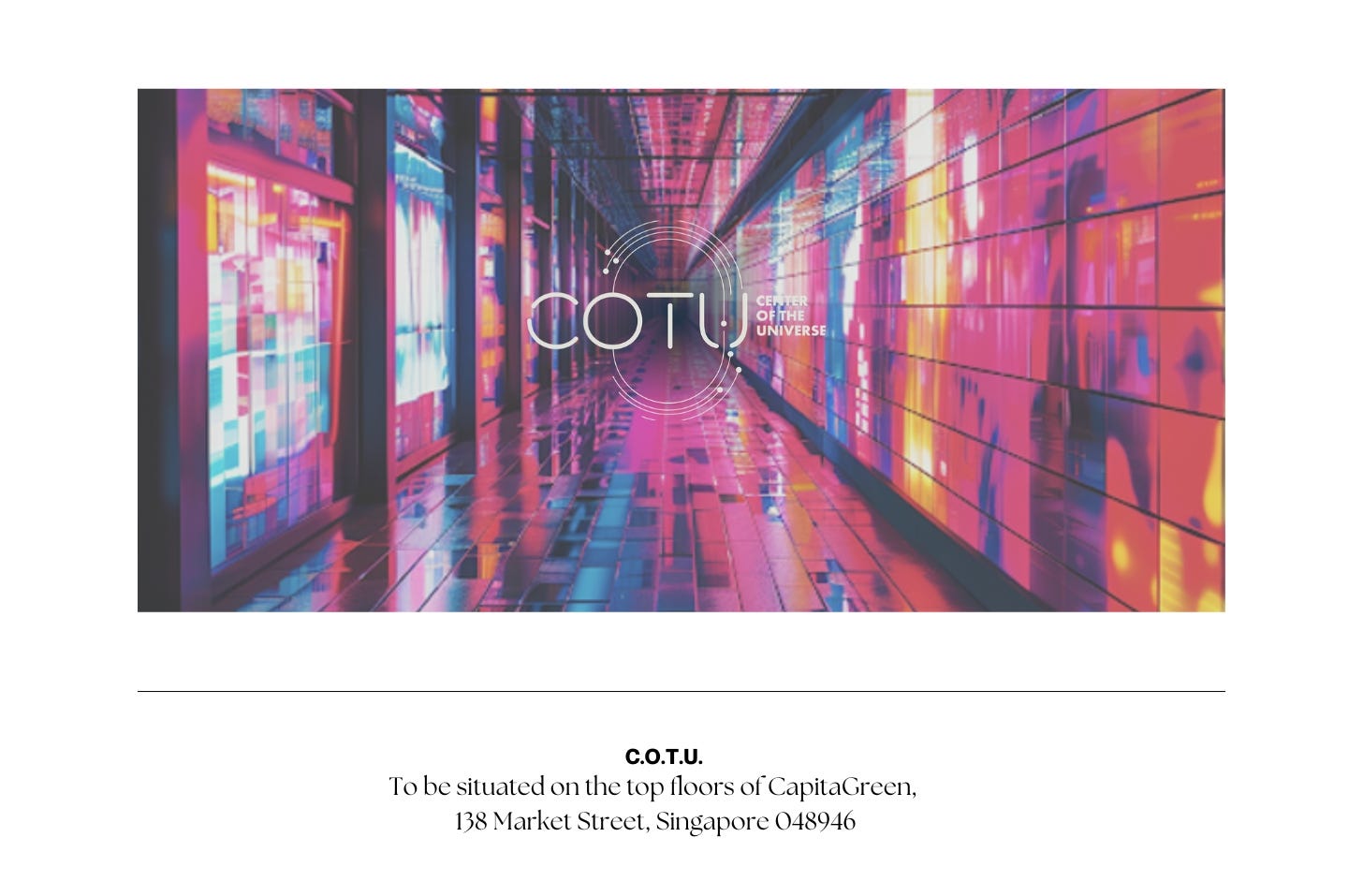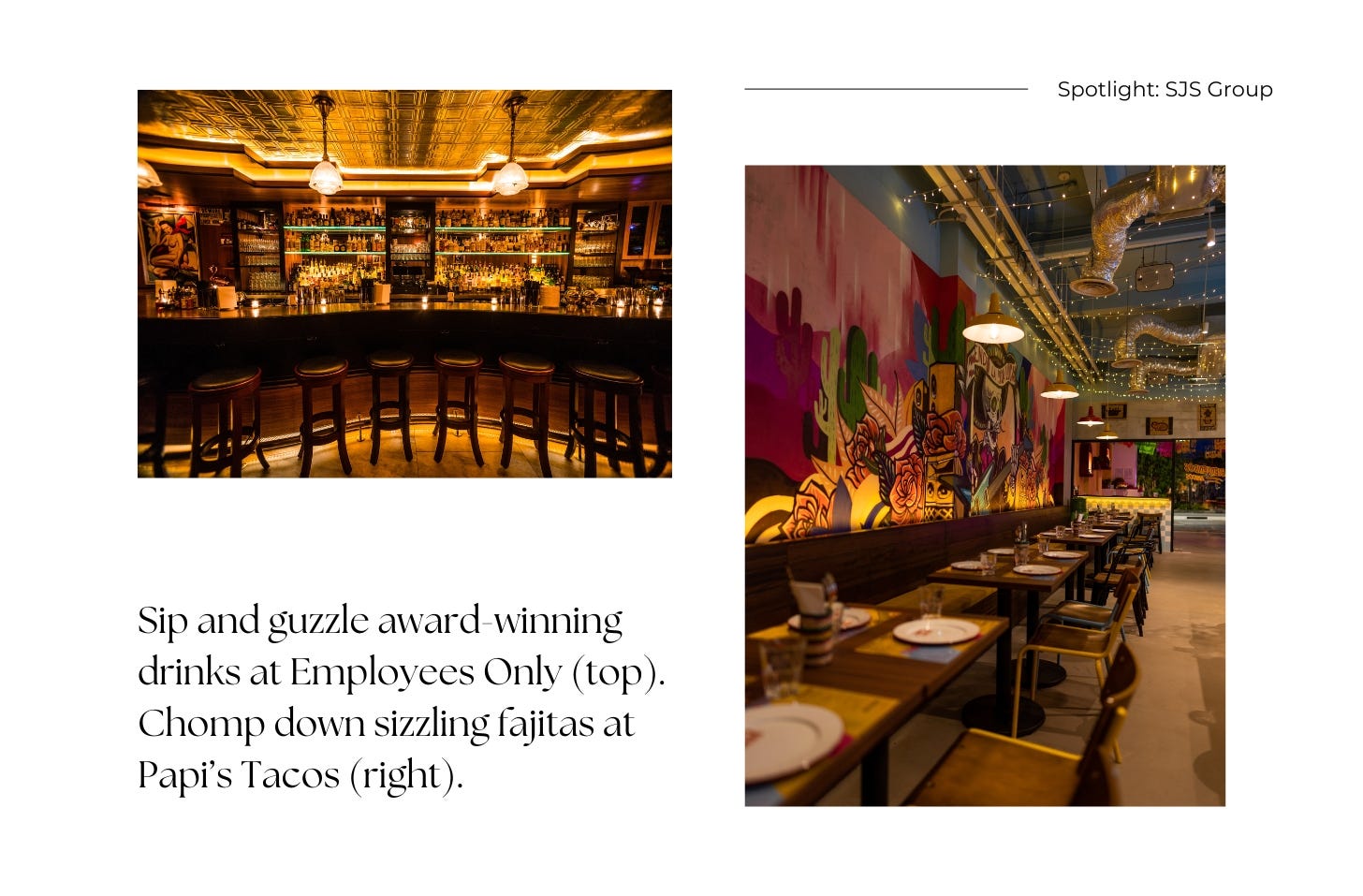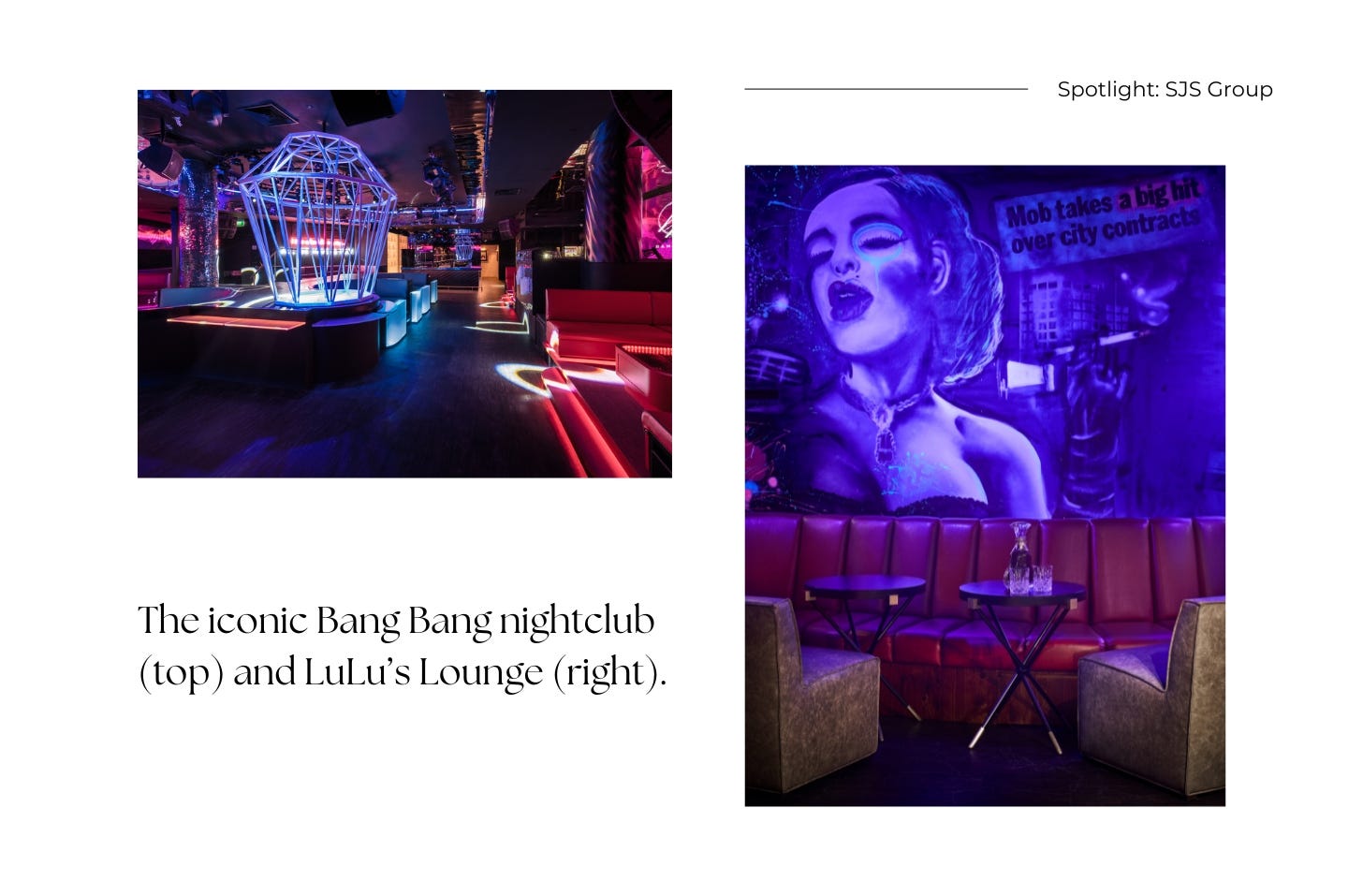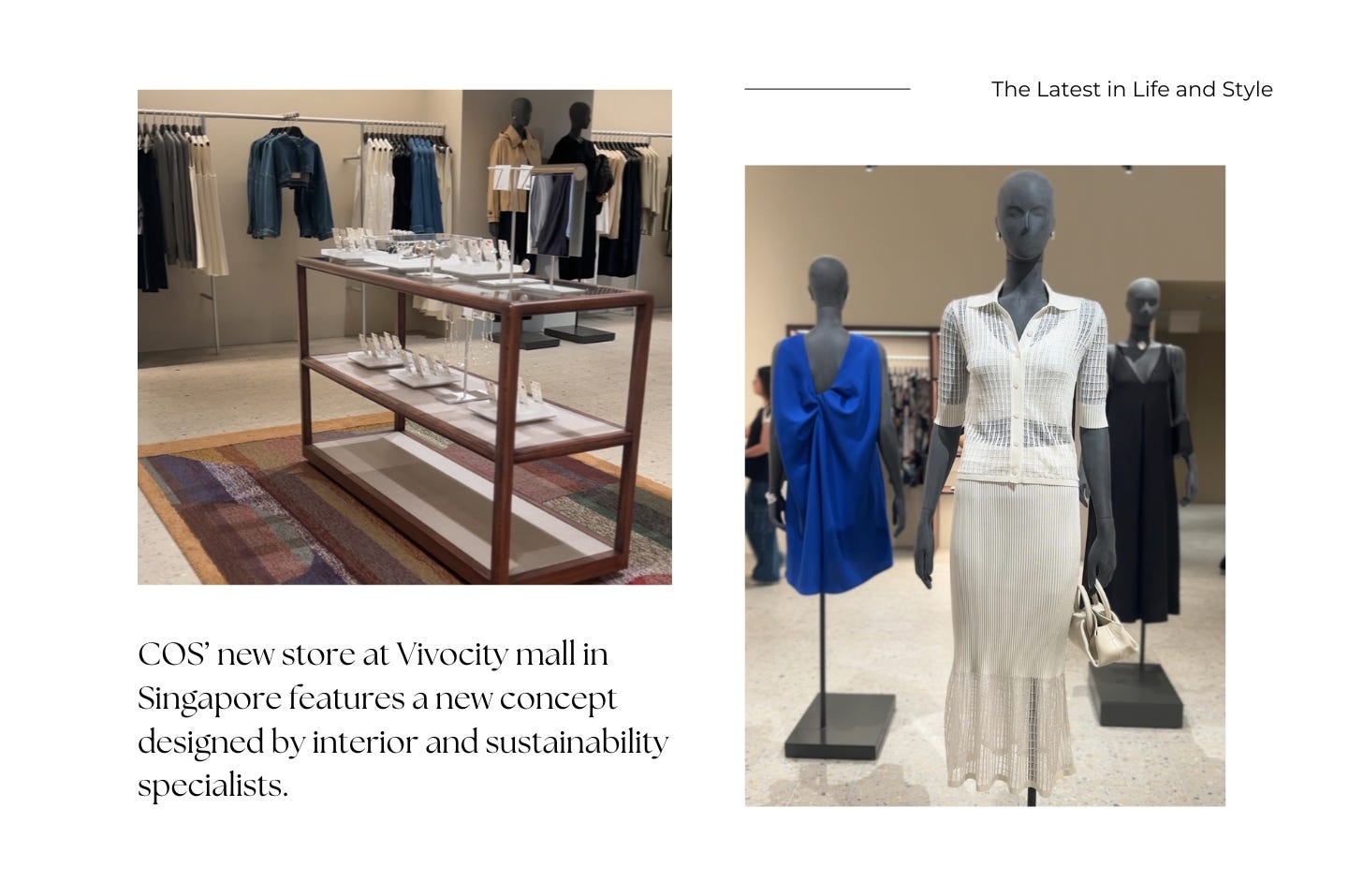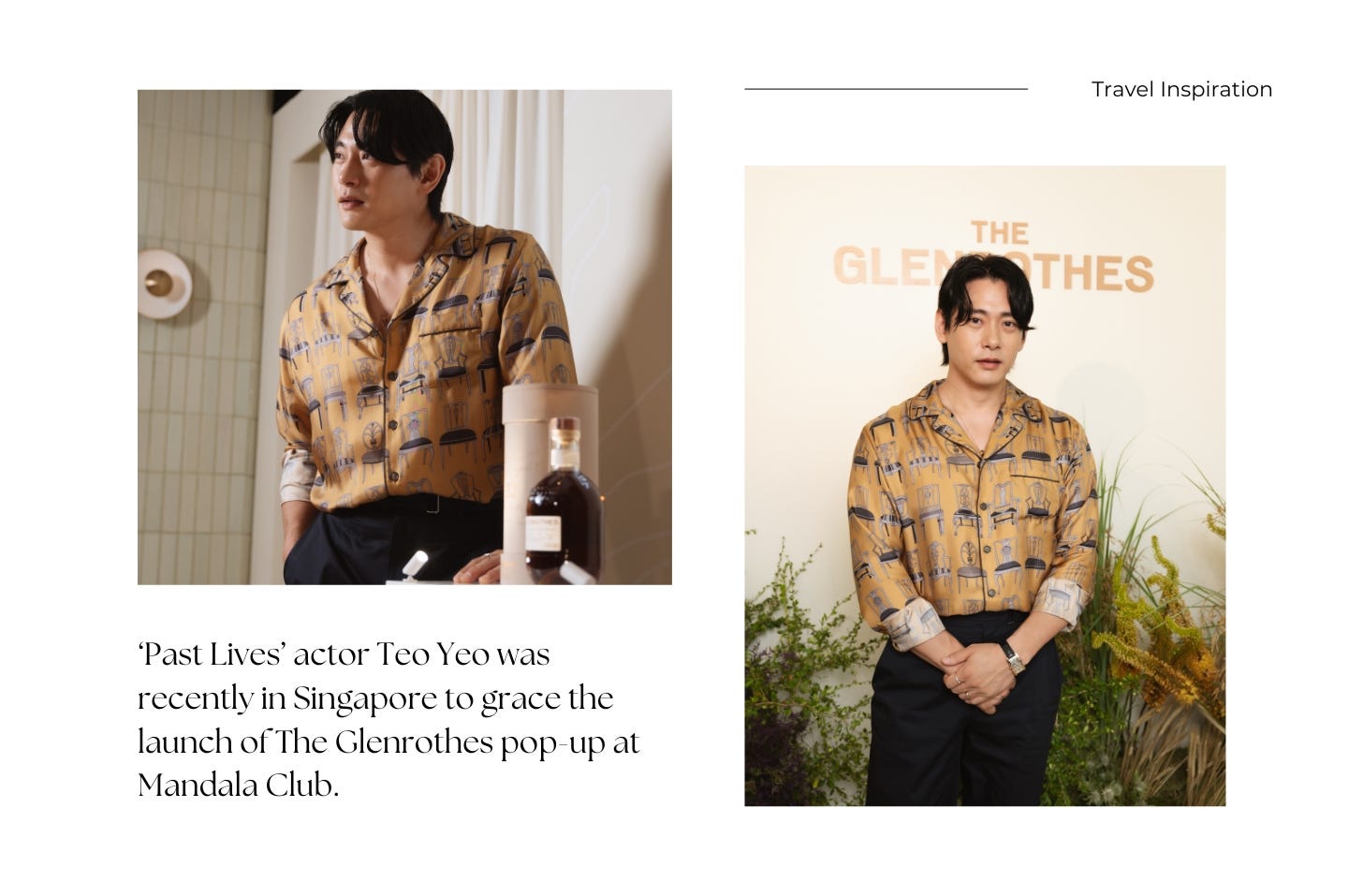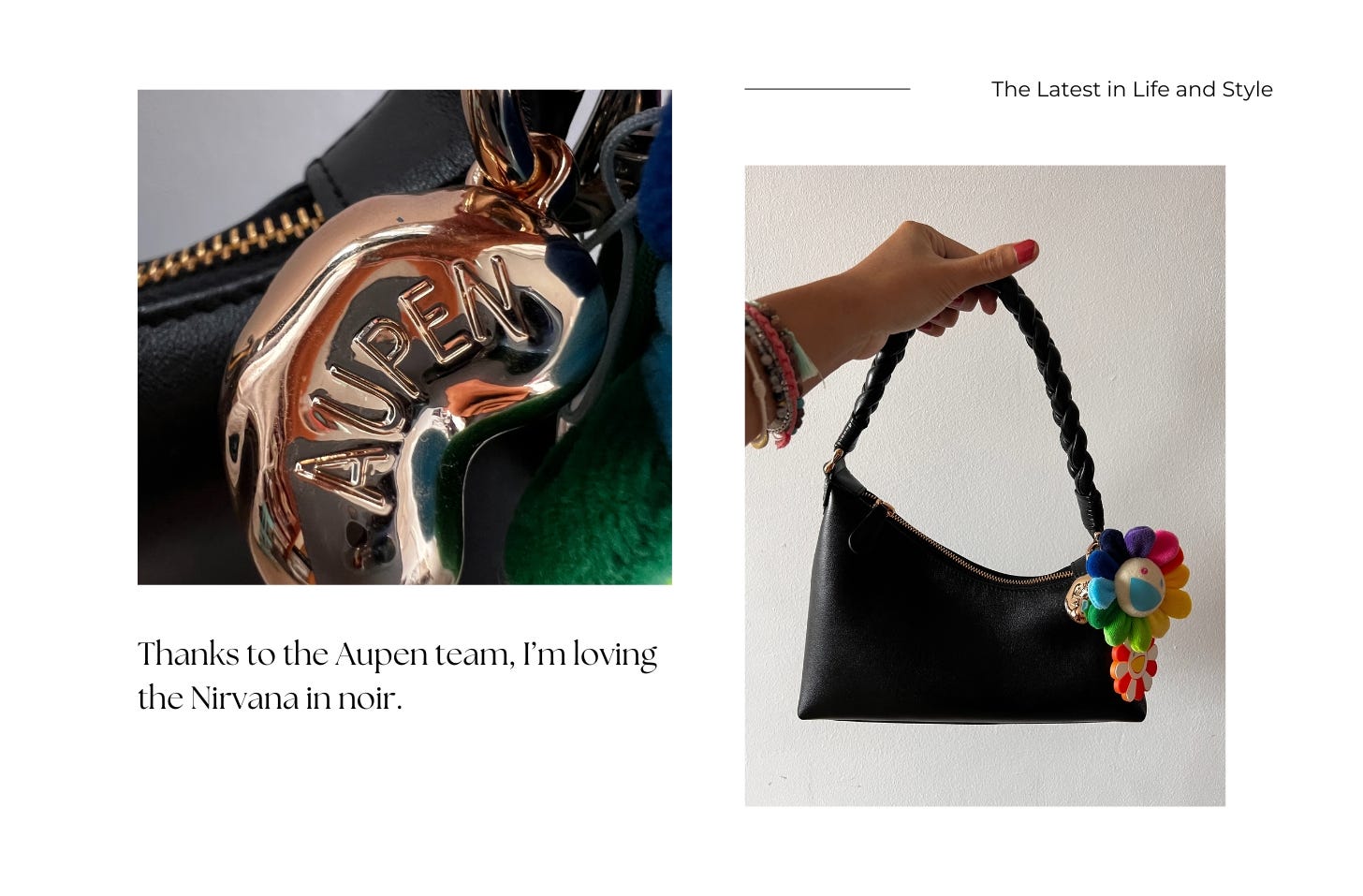Issue 1: The Conversation with Sarissa Rodriguez-Schwartz
We go behind the scenes of the city's next big thing with creative powerhouse and CEO of SJS Group, Sarissa Rodriguez-Schwartz.
Sarissa Rodriguez-Schwartz, CEO and Co-founder of SJS Group, developed a passion for hospitality at a young age, working in an Italian bakery at just 14. Combining her love for food with her keen business sense, the New York native brought her talents to Singapore. Here, she founded SJS Group, a successful hospitality company operating popular establishments such as Employees Only, Papi’s Tacos, and Pasta Bar. While the group previously operated the iconic LuLu’s Lounge and Bang Bang nightclub, these venues have since closed.
Sustaining a F&B establishment in Singapore is a formidable challenge. The highly competitive market is characterised by a plethora of dining options and diners are spoiled for choices. Steep rental costs, particularly in prime locations, significantly impact profit margins. Coupled with the rising costs of labour and ingredients, F&B operators navigate a delicate balance to ensure profitability while delivering exceptional customer experiences.
We inquired about Sarissa's perspective on this and her next big project, C.O.T.U, that everyone's been discussing.
I understand that you’re working with your husband, Joshua, in your current company. What’s the working relationship like, and is there a ruling of no work talk at home? What’s the best thing about working with him?
Sarissa: Working with Josh has been an incredible journey. We balance our professional lives well, respecting each other's roles and skills. At work, we collaborate effectively and complement each other’s strengths.
We don't have a strict no work talk policy at home, which actually works well for us. We often find ourselves discussing ideas and brainstorming over dinner or during our downtime, which keeps us engaged and inspired.
The best part about working with Josh is the trust and support we have for each other. His creativity and passion are truly inspiring and always bring a fresh perspective to our projects. We share the same vision for our company, which makes decision-making and tackling challenges much easier.
From New York to Southeast Asia, why did you choose to be based here in Singapore?
In 2009, I chose to make Singapore my home when I was recruited for a project at Marina Bay Sands called Pangaea. Upon arrival, I instantly fell in love with the city and knew I had made the right decision.
Professionally, Singapore has been a land of immense opportunity, allowing me to create a variety of highly acclaimed venues. Bang Bang, my first nightclub, was a small, intimate space equipped with all the features of a mega club. We enjoyed an incredible six-year run, which is akin to a century in nightclub years, only closing due to the forced shutdowns from COVID-19. During those six years, many competitors came and went, solidifying our dominance in the nightclub scene.
LuLu’s Lounge was a pioneer in introducing interactive live entertainment as an organic part of the evening experience. The entertainment happened around guests rather than being a performance for them. We also broke new ground by introducing burlesque and BOYlesque, pushing the boundaries of entertainment.
Employees Only was a high-energy cocktail bar, the first of its kind, and it was incredibly rewarding to introduce a new way of experiencing cocktail culture.
Papi’s Tacos was the first authentic Mexican casual dining restaurant, modelled after a taco truck in Mexico. It has been so well received that, alongside our Mexican chef and partner, Mauricio Espinoza, we now have three locations, with two more planned by the end of 2025.
Pasta Bar was a long-held dream to create a truly artisanal fresh pasta experience through interactive counter dining. We are unique in that we hand-make 11 different dough recipes, tailored to the pasta shape and composition.
What would be your next expansion stage?
2024 brings a wave of exciting expansions. Our most ambitious project, C.O.T.U (Centre Of The Universe), is set to be a thrilling lifestyle and entertainment destination on the 38th and 39th floors of CapitaGreen. Spanning 18,000 square feet with sprawling floor-to-ceiling 6m windows offering extraordinary views of the city skyline, this is sure to become an iconic spot. C.O.T.U will house five unique concepts under one roof: Dashi Skypool, Enso steakhouse with Japanese flair, The Whisper Room cocktail bar, Little Birdie progressive cocktail bar, and Dashi Go-Go boutique ultra-lounge.
Additionally, we are planning to open two more Papi’s Tacos locations and are excited to announce a collaboration pop-up with Mexican Chef Maribel Martinez called Mami’s Tamales, which will be held on Keong Saik Road.
There is a general overview that Singapore is an expensive place to work and live in. With the increase in GST next year, and the mushrooming of so many F&Bs here in Singapore, do you think competition is welcoming for business or a challenge?
In my view, competition can be either beneficial or detrimental. Singapore is home to a myriad of fantastic concepts, chefs, hotels, concerts, and lifestyle options, making it a vibrant and dynamic city. Since arriving in 2011, I have been incredibly proud to contribute to Singapore’s appeal and help attract such high-quality ventures. When new entrants succeed in delivering exceptional experiences, it enriches the scene for everyone.
However, "bad competition" refers to businesses that fail to meet standards in food and service. This can lead to a decline in consumer confidence, ultimately causing people to go out less frequently. Ensuring high quality across the industry is essential for maintaining the vibrancy and appeal of Singapore’s hospitality and entertainment sectors.
You’ve had to make hard choices to close down iconic places like Lulu’s Lounge and Bang Bang. Do you feel an emotional connection to those places and how has that affected you?
These venues were more than just businesses; they were integral to our identity and the Singapore community. We would have continued, but the restrictions on legally operating an entertainment venue—specifically, the two-year ban on live entertainment and public entertainment licences—made it impossible to keep going. It’s still heartbreaking to think about. However, we are now eagerly looking forward to the next chapter with the opening of C.O.T.U.
Which comes first for you: profit or purpose, and why?
You must solve a problem or fill a void by closely understanding what consumers want. At the same time, generating profit is essential for sustained operations. Unlike some industries that can afford concepts like "burn rate" or "scaling to profitability," our industry requires immediate profitability to thrive.
What’s the biggest challenge you’ve faced as a CEO?
You can't just take credit when things are going well; you must also take accountability during tough times and make difficult decisions. Facing people directly, taking responsibility, and having hard conversations are always challenging, but it's something I take very seriously.
What’s a great night for you?
I just love a cozy dinner with girlfriends. One where we order “both the red and white wine”, pick at small plates, take a few sips of each other’s martinis and giggle. When in NYC, I’d throw in a comedy club to top it off.
What’s the best thing that’s happened to you in the first half of this year?
So much has happened! A killer gastrobeats for Papi’s Tacos with constant lines. Announcing the November launch of C.O.T.U Lifestyle & Entertainment venue in the Straits Times, partnering with Maribel Martinez to launch Mami’s Tamales pop-up, and beautiful holidays to Paris, Osaka, and Tokyo Disneyland.
Complete this sentence: My guilty pleasures are…. dry-aged Ibérico ham, thriller film noir, and really just constantly kissing my dog.
The Latest in Life and Style
1. COS debuts new concept store at Vivocity mall
Designed in-house with the expertise of interior and sustainability specialists, the new COS store will showcase carefully considered colours, surface textures, and materials rooted in circular design principles.
Spanning 330m², the space features wardrobes and vitrines crafted from MOSO’s self-renewing bamboo and recycled shelving by Smile Plastics. Terrazzo floor tiles by Grassi Pietre comprise 90% recycled content, while Kasthall’s handwoven or tufted, made to order rugs use surplus production yarn to minimise waste. Additionally, bespoke papier-mâché and plywood tables are handmade by Paper Factor.
The main lounge area will include, an organic-shaped sofa by Audo which will contrast with angular chairs by MOCK Studio, while NOR11’s hand-upholstered daybeds and seats are set to introduce softness against dark wood and modern furnishings in the fitting rooms. Complementing this, candy-coloured Bon Bon wall and table lights by Helle Mardahl will provide warm and inviting lighting throughout the store.
Shop both womenswear and menswear in-store now.
2. A night of whisky and a story of in-yeon
Some of my friends can tell you that I was a bit obsessed with 2023’s breakout film, ‘Past Lives’, starring Greta Lee and Teo Yoo. So imagine my surprise to find out that the German-born South-Korean actor Teo Yeo was in town to grace the launch of The Timeless Artistry Experience Pop-Up at Mandala Club Singapore.
Spirit connoisseurs who purchased tickets to the pop-up on 3-4 August could spot the actor in the flesh and go on a journey to discover The Glenrothes’ elegant and distinctive whiskies, the 18 and The 25 from the Core Collection.
3. Aupen partners with LVMH Métiers d’Art initiative
Earlier, on the first week of June, I had reached out to Aupen, the Singapore-based, celebrity-loved handbag brand about a possible interview for this platform, but it had to be cancelled as the brand was in talks with a fashion group which the team had to seek approval from.
Long story short, their Instagram account was completely wiped out in May this year. This got me itching for a quote. Then in July, news blew up that LVMH would be the first company to partner with the brand through its Métiers d’Art initiative.
According to a statement from LVMH Métiers d’Art, “Aupen’s bold designs prioritise traceability and transparency, ensuring every creation resonates with conscientious luxury consumers. By tracing the journey of materials used, they appeal to evolving tastes while setting ethical standards in the luxury market.”
While we anticipate new products dropping in 2025, with durable materials and access to craftsmen and women, thanks to a partnership via Tanneries Roux, a wholly LVMH owned entity, you can still shop limited restock of the famous Nirvana bag in white on the website.
Shopping recommendations:
Other affordable, minimalist and fun bags we’d also shop for: JW Pei, Baggu, YLYYHH and Niueimee Zhou, which can be found on Amazon Singapore.
Travel Inspiration
Many have asked me what was my most memorable experience having travelled around Japan for a month in July (I do not recommend spending scorching summers in July), and the visuals that popped up in my head are the beautiful gassho-zukuri houses in Shirakawa-go and Gokayama regions that are said to be over 250 years old.
These gassho-zukuri farmhouses, which were constructed “like hands in prayer”, have been declared as a UNESCO world heritage site in 1995. Located just an hour away from Kanazawa, these farmhouses were redesigned and constructed over the years to withstand large amounts of snow that fall in winter. Interestingly, the roofs were made without nails and delicately covered with pampas grass, with the structure held strongly together by timber.
I visited one of the farmhouses called the Wada House, which has since been designated as a museum due to its large size and importance. During the Edo period, it functioned as a mayoral house and a silk production facility.
If you have the chance to visit the Ainokura gassho-zukuri village in Gokayama, pop by the washi (traditional Japanese paper) papermaking workshop hall, where you can make your own washi paper with the aid of the teacher. It takes less than 10 minutes!
According to the factual sheet, the manual production of washi was an integral part of the Gokayama villagers’ livelihood. Under the Kaga domain ruled by the Maeda clan, the feudal lords used to order a large production of high quality washi over a hundred households. The main use for washi are for shoji sliding doors, painting and printmaking.
Editor’s note
To be honest, I had set up this newsletter four years ago wanting to share personal tidbits but work and life got in the way. I’m thankful now that I have the luxury of time so I can pursue this little space where I can share my thoughts and interests. If you have any suggestions or profiles you’d like me to speak to, email me: reta@theconversation.media
Till then, the next issue #2 in September!





